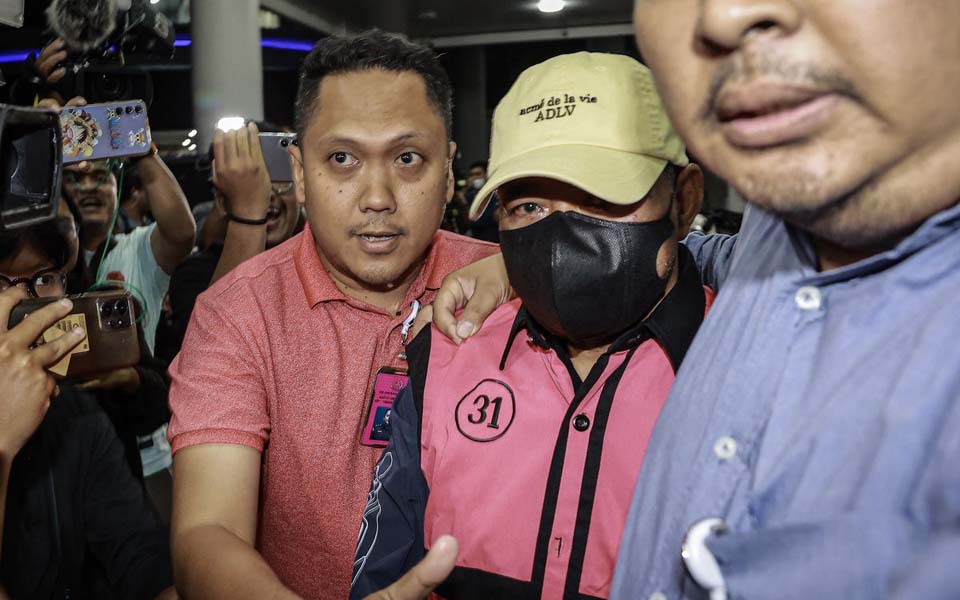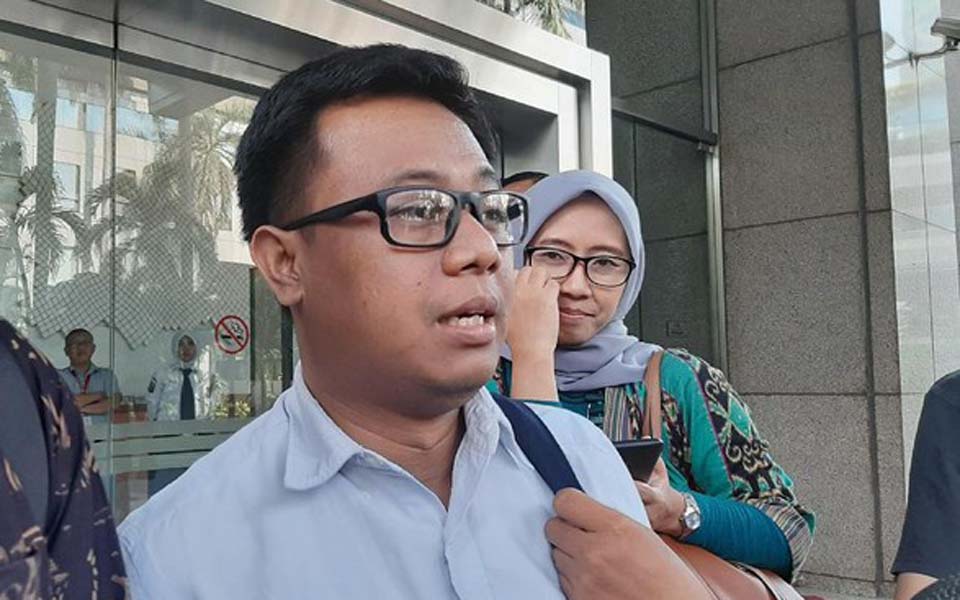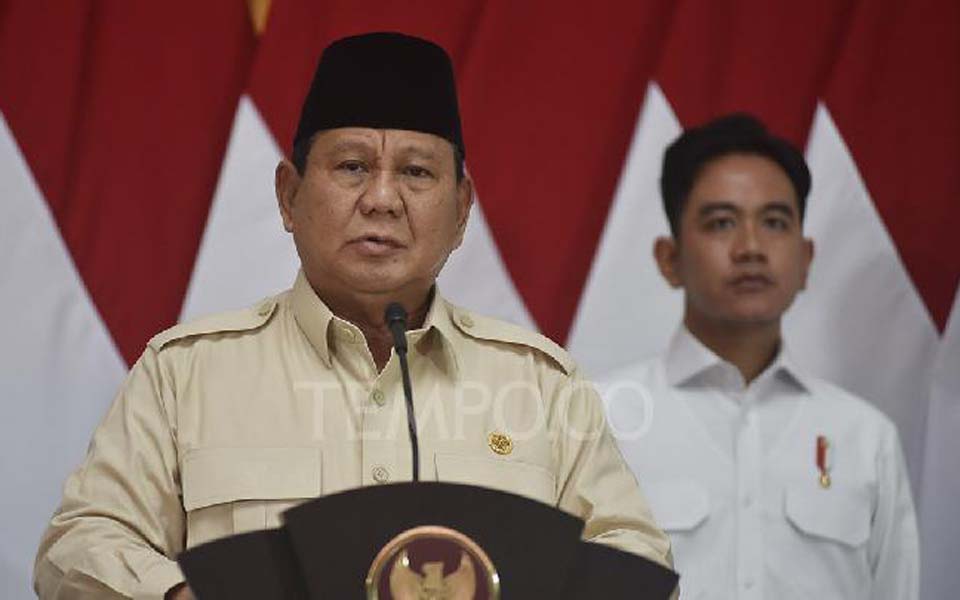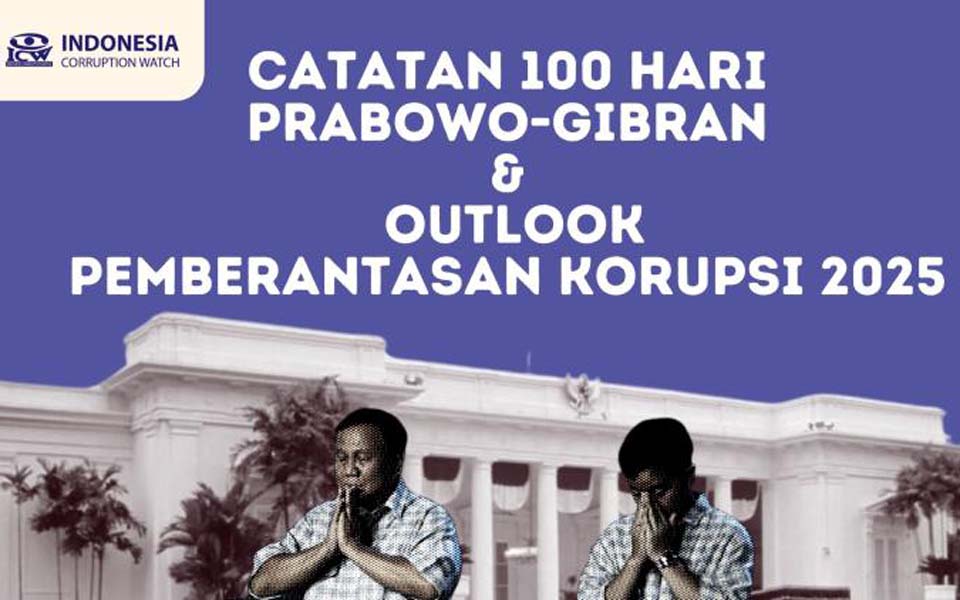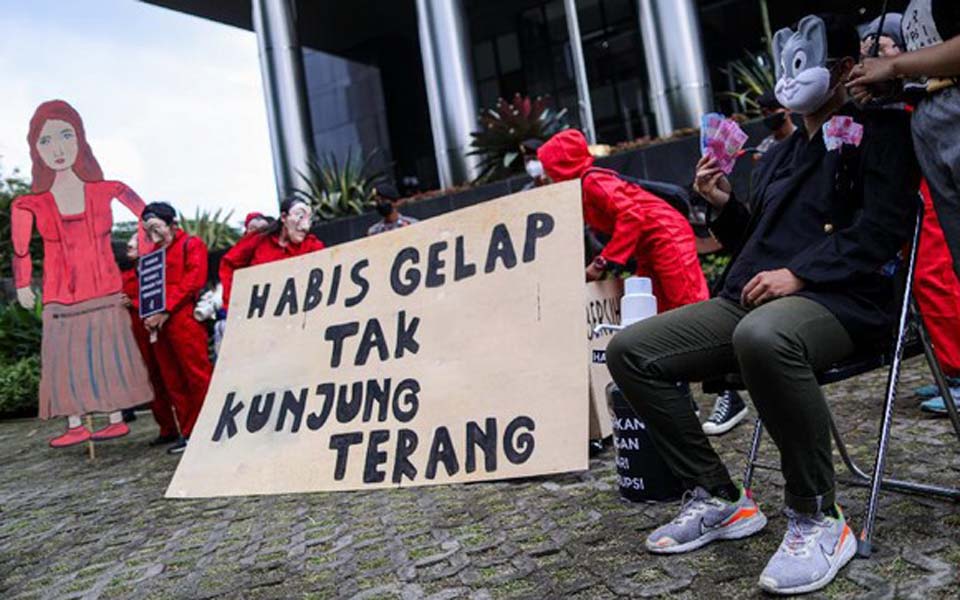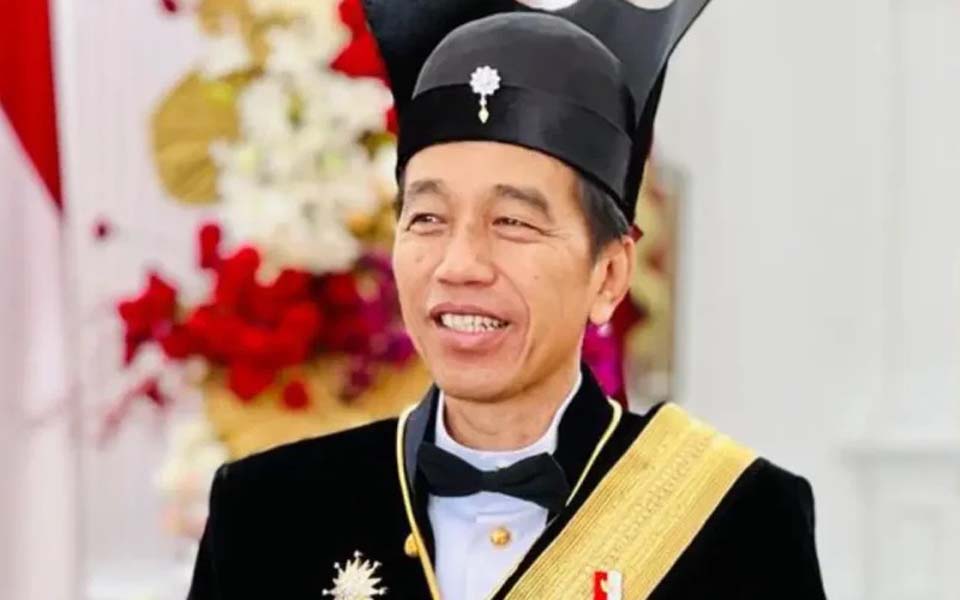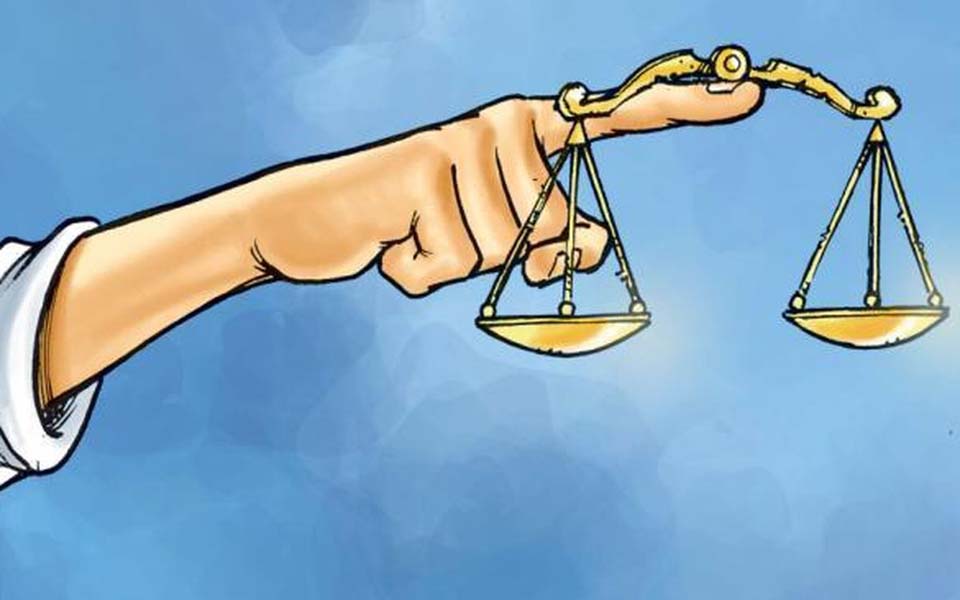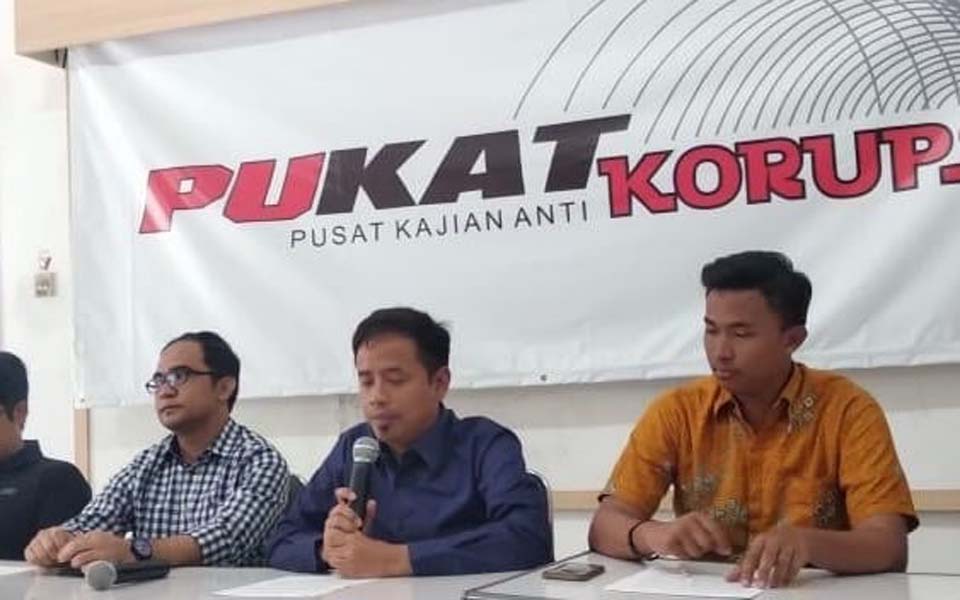Jakarta – Indonesia Corruption Watch (ICW) says that the number of cases handled by the Corruption Eradication Commission (KPK) in 2020 has plummeted to its lowest level since 2015. As a result in the drop in the number of cases being handled, the [recovery] of state financial losses also plummeted.
"This represents the lowest point since 2015 in terms of cases investigated by the KPK", said ICW researcher Wana Alamsyah when reading out a report broadcast live through the Friends of ICW YouTube channel on Sunday April 18.
According to Alamsyah, in terms quantity, the number of cases the KPK has acted on in 2020 was only 13 percent or 15 cases out of a target of 120. Based on this percentage, ICW believes that the KPK's performance in 2020 was very poor or less than 20 percent.
"We believe that the KPK's performance in 2020 is in the category E or very poor because it did not achieve a more significant figure", said Alamsyah.
In its report, ICW only classified cases which reached the criminal investigation stage and in which suspects were declared. The number of cases which met this classification was then divided by the KPK's target then multiplied by 100.
The various cases were gathered from law enforcement websites and reports in the mass media.
In terms of quality meanwhile, ICW said that the majority of corruption cases acted on by the KPK were sting operations totalling some seven cases and developing cases from previous years, also with seven cases, with only one new case in 2020.
In addition to this, ICW said that the KPK has been slow to develop strategic cases and uncover the corruptors. This, according to Alamsyah, can be seen from the handling of the Covid-19 social assistance corruption case involving former social affairs minister Juliari Peter Bara and the lobster larvae export corruption case involving former fisheries and maritime affairs minister Edhy Prabowo.
"There has been information that summoning of witnesses has not been done and so forth, we believe there has been foot-dragging in the development of strategic cases", said Alamsyah.
With regard to professionalism, based on data from the KPK website ICW found that 115 out of 149 cases being investigated are leftover or carry over cases from 2019, while 34 other cases have been investigated in 2020.
Out of this total, only 15 cases were raised to the level of a criminal investigation and some 75 suspects declared.
ICW also suspects that the investigation of carry over cases, aside from being taken to court, have also been terminated by the issuance of Orders to Stop Investigation (SP3).
"One of the cases which was carried over was a case that only the other day was SP3ed by the KPK, namely the Bank Indonesia Liquidity Support Scheme case. We are concerned and we suspected there was the potential for this", said Alamsyah.
Not only that, ICW noted that there was an alleged leak of warrants in several cases handled by the KPK. This provided an opportunity for corruptors to flee or hide evidence.
According to the ICW, the leak of warrants could have happened at the level of KPK officials or the KPK supervisory committee. Furthermore, Alamsyah regrets that this problem has not in fact been seriously followed up by the KPK. Because of this also, ICW is concerned that this will happen again in 2021.
"In 2020 we recorded a warrant leak in the case of Wahyu Setiawan, a General Election Commission [commissioner] which involved [ruling Indonesian Democratic Party of Struggle politician] Harun Masiku who remains at large to this day", he said.
This situation has resulted in the KPK receiving a score of E or very poor in its handling of corruption cases. This score was given as a cumulative measure for the performance of law the three enforcement agencies, the police, the Attorney General's Office and the KPK. (iam/nma)
[Translated by James Balowski. The original title of the article was "ICW Sebut 2020 Titik Terendah KPK Tangani Kasus Korupsi".]






